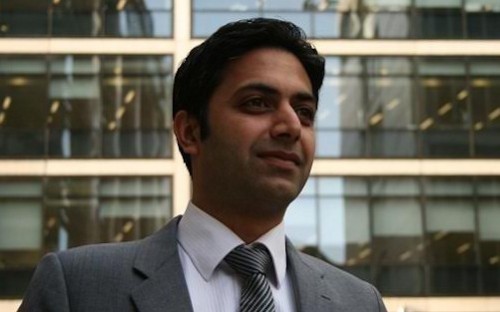Just a month after completing his MBA, he took the career triple jump – changing role, industry, and location – and landed a job at a media consulting firm in London, working on an in-house big data analytics app for a global music client.
Today, he’s a manager in the data analytics team in the risk advisory service line at Deloitte UK. He helps the big four accounting firm’s clients solve complex business problems, boost productivity, and grow, using data-driven insights.
18 nationalities are represented in Cranfield’s current MBA class. The school boasts a 28,000-strong alumni network extended across 130 countries worldwide. With the Cranfield MBA, Prabhav has taken his career to the global stage.
How important is big data analytics in today’s business world?
Every organization depends on reliable data. Companies recognize that a better understanding of data – particularly as a predictor of the future or an identifier of existing issues – can create new opportunities and makes a significant difference to managing performance, costs and risk.
Managed well, data will drive revenue, reduce costs and mitigate risk. Managed poorly, it can lose customers, inflate costs and expose businesses to unbounded levels of risk.
How are you applying your MBA learnings in your current role?
The Cranfield MBA has given me a broad skillset which I apply in my day-to-day work as a business consultant. I developed my soft skills as I worked with people from diverse backgrounds having different personalities. And I also learned core business skills including accounting, finance, operations, marketing, and economics.
I have worked on a couple of engagements with senior stakeholders in the finance department of a client organization. I am not from a finance background but I was able to excel in those engagements given the skills I had acquired during my MBA.
What advice do you have for MBAs looking to pursue careers in consulting?
Flexibility and adaptability is key. Each consulting engagement is different, so you need to be able to adapt to working with different clients, teams and travelling to different locations.
Consulting engagements can be quite fast paced, so it’s important that people are enthusiastic and keen learners. Soft skills and stakeholder management skills are other important aspects. You need to be a good team player to work collaboratively with other members of the engagement team, and develop good working relationships with clients.
Why did you decide to pursue an MBA at Cranfield?
I chose the UK as MBA programs here are mostly one-year long and require less time investment than two-year programs in the US. I narrowed down on the top business schools in the UK based on the Financial Times’ MBA ranking.
I chose Cranfield because of its focus on personal and leadership development, diverse international student intake, and truly participatory nature of learning, which I experienced when I attended an open day at the school.
What should applicants think about when deciding to do an MBA?
Ensure that the business school is right for you and offers the environment and the specialist courses that you need to steer your career in the direction you want. This involves online research, talking to alumni, and attending open days.
Employers in different countries value MBAs differently, so it is good to get the expectations right in terms of opportunities available post-MBA. If you are choosing to do an international MBA, make sure you are aware of visa rules, language barriers and employment opportunities after you complete your course.
Financing an MBA is another important thing to consider. When I applied to Cranfield, they had a tie up with HSBC, which made it quite easy for me to take out a loan to fund the MBA.
How has the Cranfield MBA helped you in your career?
The Cranfield MBA helped me to accelerate and progress in my career at a faster rate than I would have done without it.
After I completed my MBA, I got instant access to the UK jobs market as there was a post-study work visa scheme which the UK government offered at that time. I was able to change industries from financial services to media, and shift my focus from a technical to a business consulting role post-MBA.
An MBA is hard work and a long journey, but once you come out the other end, you realize that it’s definitely worth it.
RECAPTHA :
2c
90
be
8c








